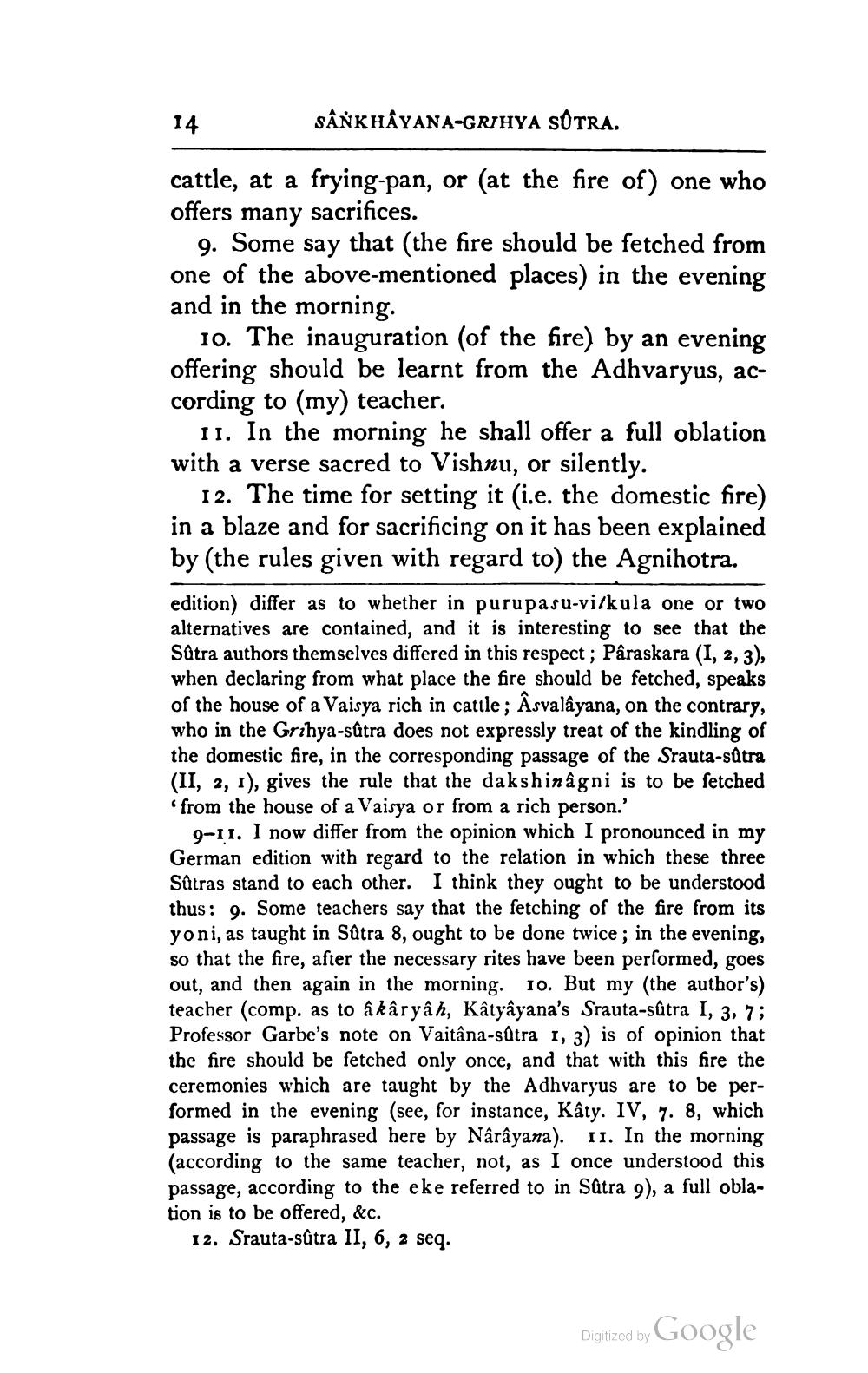________________
SANKHAYANA-GRIHYA SÚTRA.
cattle, at a frying-pan, or (at the fire of) one who offers many sacrifices.
9. Some say that (the fire should be fetched from one of the above-mentioned places) in the evening and in the morning.
14
10. The inauguration (of the fire) by an evening offering should be learnt from the Adhvaryus, according to (my) teacher.
11. In the morning he shall offer a full oblation with a verse sacred to Vishnu, or silently.
12. The time for setting it (i.e. the domestic fire) in a blaze and for sacrificing on it has been explained by (the rules given with regard to) the Agnihotra.
edition) differ as to whether in purupasu-vi/kula one or two alternatives are contained, and it is interesting to see that the Sutra authors themselves differed in this respect; Pâraskara (I, 2, 3), when declaring from what place the fire should be fetched, speaks of the house of a Vaisya rich in cattle; Âsvalâyana, on the contrary, who in the Grihya-sûtra does not expressly treat of the kindling of the domestic fire, in the corresponding passage of the Srauta-sûtra (II, 2, 1), gives the rule that the dakshinâgni is to be fetched 'from the house of a Vaisya or from a rich person.'
9-11. I now differ from the opinion which I pronounced in my German edition with regard to the relation in which these three Sûtras stand to each other. I think they ought to be understood thus: 9. Some teachers say that the fetching of the fire from its yoni, as taught in Sûtra 8, ought to be done twice; in the evening, so that the fire, after the necessary rites have been performed, goes out, and then again in the morning. 10. But my (the author's) teacher (comp. as to â kâryâh, Kâtyâyana's Srauta-sûtra I, 3, 7; Professor Garbe's note on Vaitâna-sûtra 1, 3) is of opinion that the fire should be fetched only once, and that with this fire the ceremonies which are taught by the Adhvaryus are to be performed in the evening (see, for instance, Kâty. IV, 7. 8, which passage is paraphrased here by Nârâyana). 11. In the morning (according to the same teacher, not, as I once understood this passage, according to the eke referred to in Sûtra 9), a full oblation is to be offered, &c.
12. Srauta-sûtra II, 6, 2 seq.
Digitized by Google




